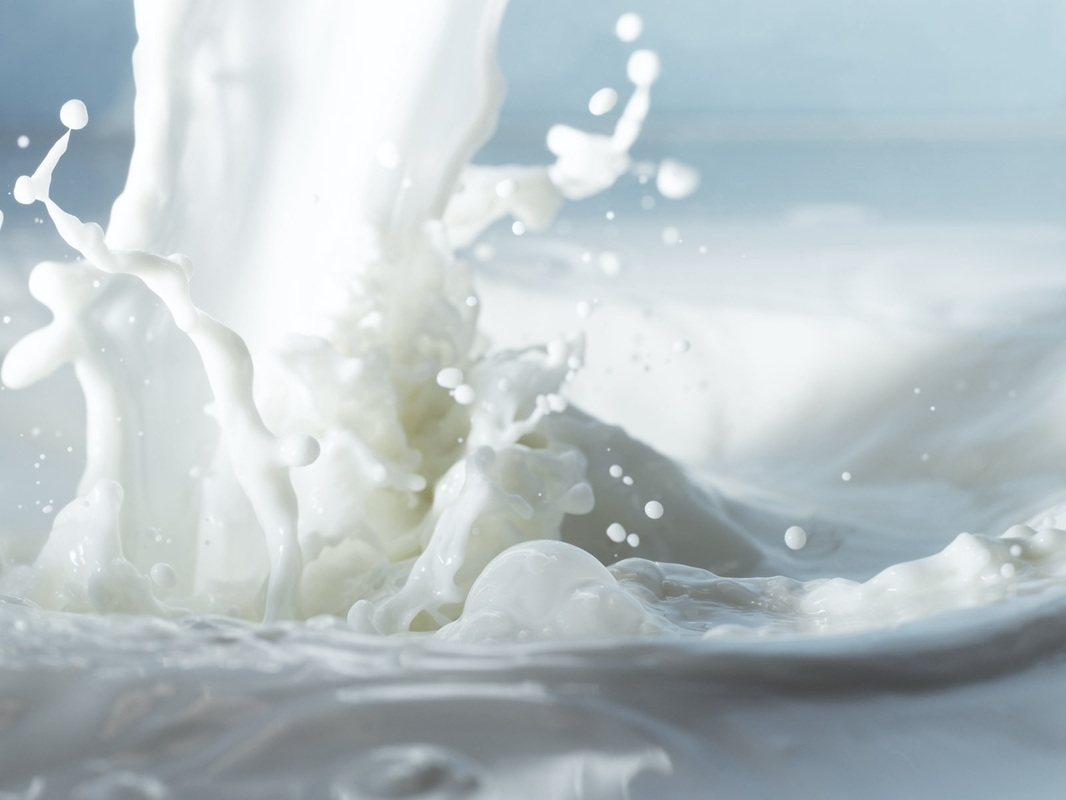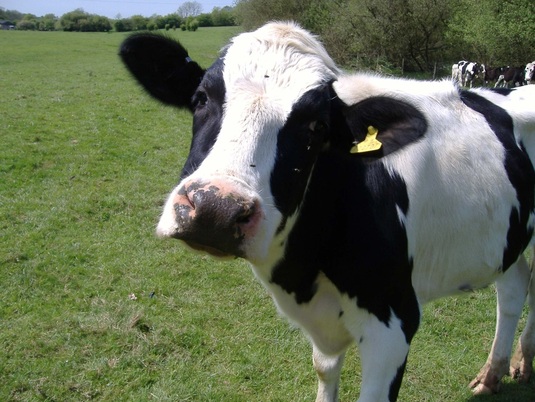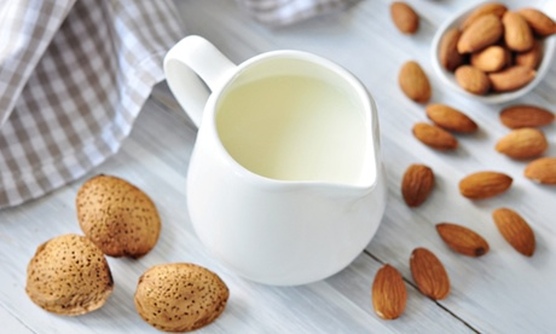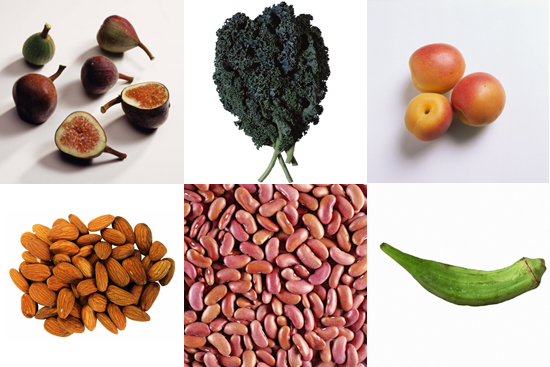Tonnes of clients ask me what "I think" about dairy. With the paleo movement at its zenith, the anti-dairy mania couldn't be higher - but it's an equal and opposite, inevitable reaction to the "got milk?" attitude of recent decades, where anyone who didn't drink milk was made to think their bones would crumble like feta the second they hit 60.
As a yoga-loving, natural therapy-studying, Accredited Practising Dietitian with 8 years of formal scientific training I find myself in an interesting position.
We need between 1000 and 1200 milligrams of calcium per day for healthy bones. Before you think "I'm not vegan, I'll be right," know that many Australians are deficient in calcium, so plenty of omnivores aren’t getting enough, either. No matter what your diet, you need to make sure to include two or three servings of calcium-rich foods in each meal, and you’ll be able to hit that target for bone health.
The Australian Guidelines to Healthy Eating suggest consuming 2.5 - 4 serves of milk, yoghurt, cheese and/or alternatives (mostly reduced fat) per day, depending on your age, gender and whether or not you're pregnant or lactating. In short, dairy (or alternatives) is an essential part of every Australian's diet - according to the AGHE guidelines anyway.
My dietetic training heightened the urge to ensure everyone gets enough dairy (or alternatives) into their diet to ensure an adequate intake of calcium and other minerals, and stop their poor little bones from snapping in half. Whether that actually happens if you don't get adequate dairy is another story altogether, and one I'll save for later :)
On the flip side, being a yogi into healthy, sustainable, wholefood based living has exposed me to two camps - the "drink milk as long as it's raw" camp and the "dairy is the devil" camp.
So what do I think of dairy? My opinion is based on what I've learnt from scientific studies (either supporting or denigrating dairy), what I've seen in practice, and my own personal experience (i.e. my 7 years as a vegetarian and 2 years as a vegan).
Here it is: I don't think dairy is inherently "bad" or "good' - I think that for some people it's a health food, and for others it brings disease.
Why do some races and cultures do well on dairy, thriving on raw milk products and kefir from infancy to old age, whilst others suffer from respiratory problems, lowered immunity and digestion issues when they consume any milk products - including organic? Why does one person thrive on a vegan diet whilst another feels weak after a few days without animal flesh?
Besides factors like quality (go for organic if you can), age, health/disease status, and environment, genetic inheritance plays a huge part in whether or not certain foods are suitable, or will ever be suitable, for a person to include in their diet.
As a student dietitian I worked with newly arrived migrants in community health settings, including a memorable group of migrants from Burma. We would teach the group cooking skills, which was laughable considering their far superior skills in cooking amazing Burmese cuisine. We also “enlightened” them on the five food groups from which they were supposed to eat, and where they could find these foods in Australian supermarkets.
One of the recommendations from the Australian Guidelines to Healthy Eating was that each adult should include the (then) 2-3 serves of dairy foods per day (this has since increased to 2.5-4 serves.)
These were a people who had never eaten dairy foods in their lives, had never milked other animals for any reason, and here we were telling them they needed to start consuming considerable amounts of breast milk from another mammalian species in order to maintain bone health.
Even though in the west such foods are deemed essential, the fact is they work well for certain groups but not so well for others. Certain African, Oriental and eastern European ethnic groups show a demonstrable intolerance for milk products. African and Oriental groups typically lack the lactase enzyme needed to break down the milk sugar lactose. On the other hand, people of eastern European descent do have a high lactase concentration yet frequently show an unusual sensitivity to dairy products.
Many ethnic groups traditionally ate lots of dairy, sometimes as their staple food. The Abkhasians of Russia are an example. But in contrast to most westerners, the dairy these people traditionally ate was fresh, not homogenised nor pasteurised, organic, and included cultured milk products which are high in probiotics, which may have even supported their ability to break down dairy sugars and proteins.
Being half Chinese, I battled with terrible lactose intolerance as a kid, and don't touch milk nowadays. However I do find I can get away with eating some high quality cheese (which I LOVE) because cheese is much lower in lactose. Goat's cheese works best digestively - for me.
Additionally, cultural beliefs play a large part in the inclusion of dairy in many diets. In India the cow is revered as a sacred animal, a manifestation of mother and sustainer of life. Milk is consumed in many forms as a highly nutritious food, and for thousands of years ghee has been used in therapeutic interventions in Ayurvedic health. For someone to deem dairy “bad” would be offensive and non-sensical to someone of Indian descent with deeply instilled Hindu values.
It is quite understandable for someone with a high lactase concentration or of Indo-European descent to conclude that dairy products digest seamlessly and are “good” for health. It is just as natural for those with a low lactase level to conclude that dairy is “bad”, especially give the gas and stomach cramps its consumption can induce. Neither of these assumptions are true or false universally, and trouble arises when either of these conclusions are generalised.
There is not one but a whole spectrum of nutritional systems suitable for human consumption. This spectrum is a function of genetic inheritance, geography and cultural beliefs.
6 Ways to Discover your Dairy Dilection
In short, what works for one person may not work for everyone. I don't believe the Paleo hype that says "we were not meant to eat dairy." Who was not meant to eat dairy should perhaps be the question.
Nor do I agree with the belief that we should all be drinking cow's milk to get our calcium. Here's some things to keep in mind when deciding on whether to go cow or not:
- Use general guidelines wisely, keeping in mind that they are general and were designed for the general Australian population. They might not work for you, or they might!
- Listen to your body. Do you feel tired, bloated and crampy after eating yoghurt? Then it's probably not an ideal food for you! Are you of Swiss descent and have no trouble guzzling milk and eating cheese? Then go for it! Just make sure you're getting all the other goodies you need from the other food groups, too.
- Go for quality - organic or biodynamic or non-homogenised cow's or goat's milk reigns supreme over normal pasteurised, homogenised milk. Cows from organic and biodynamic farms are generally treated better, too.
- If your body can indeed deal with dairy just fine but you like cows and don't like the horrible conditions they often have to withstand in order for us to extract their baby's food from their teats - then don't have dairy. There are other ways to get your calcium, I repeat, there are other ways!
- For the dairy-wary: go for kale, other dark green leafies, nuts, sesame seeds, tempeh, blackstrap molasses, tahini, almond butter, broccoli, amaranth, adzuki beans, okra, figs, among others.
- If you're still in doubt about whether you're getting all the nutrients you need, speak to an open-minded nutrition professional - a university qualified dietitian, nutritionist, or naturopath. Not a paleo health coach, your vegan activist friend, or your cross fit trainer - pretty please.





































 RSS Feed
RSS Feed



